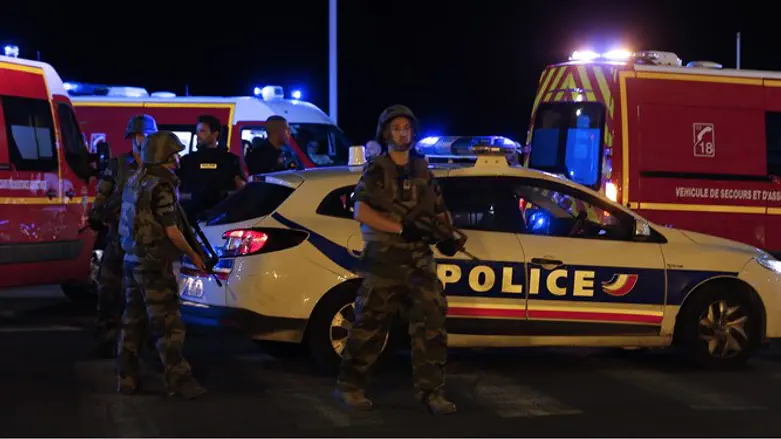
French lawmakers voted massively on Wednesday to extend a state of emergency as President Francois Hollande said that a call to boost reserve forces had paved the way towards a "National Guard."
The government is scrambling to find new ways to assure a jittery population after its third major attack in 18 months saw a truck driver plow into a crowd celebrating Bastille Day in Nice last Thursday, killing 84 people.
After seven hours of fraught debate into the night, during which the opposition accused the government of being lax on security, the lower house of parliament voted by 489 to 26 to prolong the state of emergency for a further six months, according to the AFP news agency.
Then on Wednesday afternoon, a large majority of senators followed suit, voting to extend the state of emergency by 309 to 26.
It is the fourth time the measures have been extended since Islamic State (ISIS) jihadists struck Paris in November, killing 130 people at restaurants, a concert hall and the national stadium.
ISIS also claimed the attack in Nice, calling the terrorist who carried it out “one of the soldiers of ISIS”, though investigators have said there was no evidence he acted on behalf of the extremist group.
Hollande had planned to lift the emergency measures on July 26 but changed tack after the Nice attack by Tunisian Mohamed Lahouaiej Bouhlel.
Hollande said on Wednesday that of the 331 people injured in the Nice attack, 15 were still fighting for their lives. The victims came from 38 different nations.
As part of the government's reaction to the assault -- which has exposed it to tough questions over security failures -- a call has gone out for volunteers in the reserve forces.
Between current reservists, and the call for more volunteers, "we can say that France, with you, is forming a National Guard," Hollande said Wednesday on a visit to a military training complex in southwest France.
France's reserve force comprises civilian volunteers in the police, army and paramilitary police, who can be deployed for specific missions.
Hollande's Socialist government had proposed a three-month extension to the state of emergency but relented to demands from the conservative opposition that the tough security laws be kept in place until the end of January.
The laws give the police extra powers to carry out searches and place people under house arrest.
On Wednesday, MPs also voted to allow authorities to search luggage and vehicles without prior approval from a prosecutor and to allow the police to seize data from computers and mobile phones.
The legislation also makes it easier for authorities to shut down places of worship where calls for violence and hate are made.
The bill then passed to the upper house, where an overwhelming majority also approved the extension.
The government has defended its response to the jihadist threat, pointing to a raft of new anti-terror laws and the deployment of thousands of troops to patrol the streets.
A recent parliamentary commission of inquiry said however the new laws had had a "limited impact" on security.
On Tuesday, Prime Minister Manuel Valls warned the country about the enduring nature of the menace from extremists returning from jihad in the Middle East or becoming radicalized at home, by devouring propaganda on the internet.
"Even if these words are hard to say, it's my duty to do so: There will be other attacks and there will be other innocent people killed.
"We must learn to live with this threat," he told parliament, accusing opponents who suggested the Nice attack could have been thwarted of "lying to the French".
AFP contributed to this report.